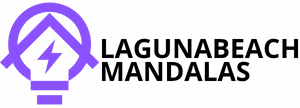Imagine living in your dream home while someone else foots the bill. Sounds like a fantasy? Welcome to the world of house hacking, where savvy homeowners turn their properties into profit-generating machines. By renting out a portion of their space, they not only cover mortgage payments but also keep their utility costs in check.
But let’s face it—managing utilities can feel like juggling flaming torches while riding a unicycle. From understanding energy consumption to optimizing water usage, it’s a balancing act. With a few clever strategies, anyone can master the art of house hacking utilities and transform their living situation into a financial win. Get ready to dive into the nuts and bolts of making your home work for you, because who wouldn’t want to save a few bucks while enjoying a little extra space?
Table of Contents
ToggleUnderstanding House Hacking Utilities
House hacking offers homeowners a way to offset housing costs by utilizing excess space. Managing utilities plays a crucial role in maximizing savings while renting out part of a property.
What Is House Hacking?
House hacking refers to the practice of using a property to generate rental income. Homeowners often achieve this by renting out individual rooms, basement suites, or even entire units. This approach lowers living expenses while providing additional financial support. The concept aims to turn part of a home into a revenue-generating asset. By doing so, homeowners can significantly reduce or eliminate their mortgage payments.
Importance of Utilities in House Hacking
Utilities impact the profitability of house hacking. Efficient management of water, electricity, and heating costs ensures higher net income from rent. Tenants often appreciate included utilities, making properties more attractive. Tracking utility expenses helps homeowners budget effectively and assess the impact on overall profitability. Understanding utility costs allows for strategic adjustments, enabling savings that enhance the financial viability of house hacking strategies.
Types of House Hacking Utilities
House hacking utilities include different methods to manage energy and water costs effectively. Understanding these types helps homeowners maximize their rental income and minimize expenses.
Rental Utilities
Rental utilities refer to individual arrangements where tenants pay for utility services separately. This method allows landlords to pass on utility expenses directly to renters, reducing their financial burden. Examples include electricity, gas, and water utilities billed separately according to usage. By implementing this structure, homeowners maintain better control over utility costs, ensuring they align with rental income. Utilizing smart meters encourages efficient energy use, which can appeal to environmentally-conscious tenants. Tracking separate utility payments creates transparency in financial dealings, fostering trust between landlords and tenants.
Shared Utilities
Shared utilities occur when landlords and tenants split utility costs evenly or based on usage. This arrangement often simplifies financing for homeowners. Commonly, utilities such as internet, heating, and water are included in rent, enhancing convenience for tenants. Establishing clear agreements about shared utilities ensures all parties understand their responsibilities. Including flat fees in rent provides stability and predictability in monthly expenses. Utilizing billing software can streamline tracking of shared costs. Coordinating regular maintenance helps keep shared utilities functioning efficiently, benefiting both landlords and tenants in the long run.
Cost-Benefit Analysis of House Hacking Utilities
House hacking utilities present a significant opportunity for financial optimization in real estate. Understanding the costs and benefits is crucial for homeowners.
Initial Investment vs. Long-Term Savings
Initial investments in upgrades can lead to substantial long-term savings. Homeowners often spend on energy-efficient appliances, smart meters, and insulation. These modifications reduce utility expenses over time, creating an immediate payoff. Many property owners note that the savings from lower energy bills offset upfront costs within a few months. Tracking these expenses can reveal the best improvements, adding value to the overall investment. Ultimately, minimizing long-term utility costs enhances profitability in house hacking ventures.
Impact on Property Value
Effective management of utilities can increase property value significantly. Properties with lower utility costs appeal to potential buyers and tenants. Energy-efficient systems not only reduce monthly bills but also demonstrate a commitment to sustainability. The market often values homes with advanced technology and lower operational costs higher than traditional dwellings. By keeping utility expenses in check, homeowners position their properties attractively within the real estate market. Long-term utility management strategies contribute positively to the overall valuation of the property as well.
Tips for Successful House Hacking
Effective house hacking requires strategic planning and informed decisions. Optimizing tenant selection and utility management can significantly enhance profitability.
Finding the Right Tenants
Attracting the right tenants starts with clear advertising. Define your target audience based on lifestyle and rental preferences. Utilizing online platforms expands reach and interest. Setting competitive prices encourages interest while ensuring affordability. Conduct thorough background checks to confirm reliability and responsibility. Engaging in open communication establishes expectations and fosters positive relationships.
Understanding tenant needs can also enhance tenant retention. Offering flexibility in lease terms can cater to varied lifestyles. Ensuring quick responses to inquiries further reinforces a desirable rental experience.
Managing Utility Costs Efficiently
Control over utility costs begins with understanding usage patterns. Regular monitoring of energy and water consumption helps identify areas for improvement. Implementing energy-efficient appliances reduces expenses over time. Using smart thermostats can optimize heating and cooling, yielding significant savings. Consider investing in proper insulation to maintain a comfortable living environment while minimizing utility bills.
Establishing clear utility agreements prevents misunderstandings. Discussing shared costs upfront ensures transparency and accountability. Utilizing billing software simplifies management and enhances efficiency in addressing utility expenses. Providing tenants with tips on saving energy fosters a collaborative approach to an eco-friendly home.
House hacking presents a unique opportunity for homeowners to transform their properties into profitable assets. By managing utilities effectively, they can significantly reduce living expenses while attracting quality tenants. The strategies discussed not only enhance financial returns but also contribute to a more sustainable living environment.
With careful planning and the right tools homeowners can navigate the complexities of utility management. This approach not only boosts net income but also elevates property value. Embracing house hacking with a focus on utility efficiency can lead to long-term success and financial stability.




